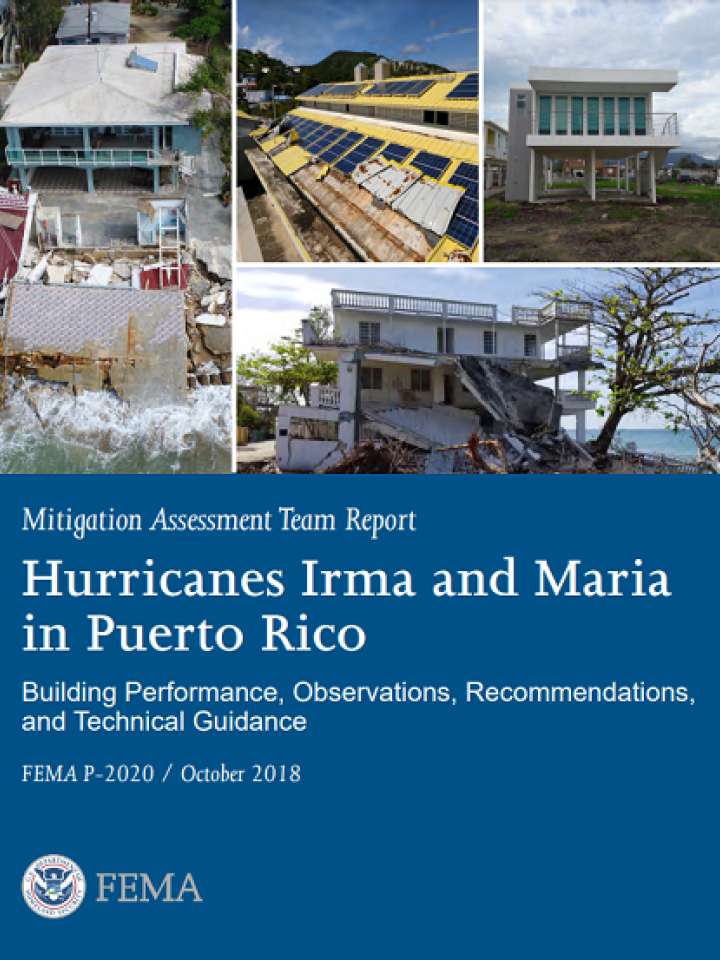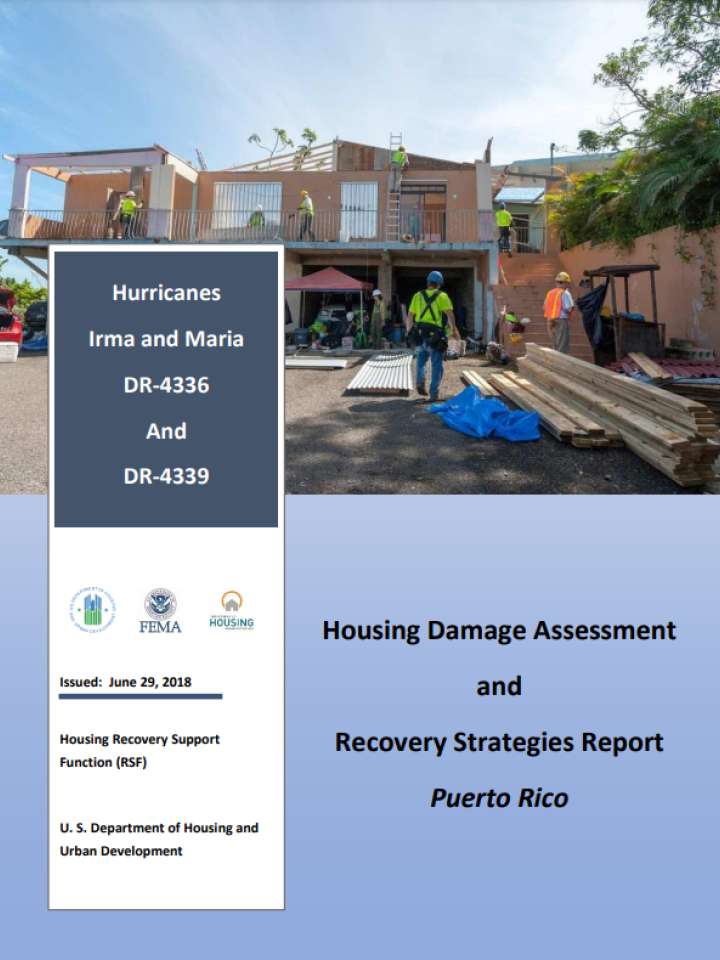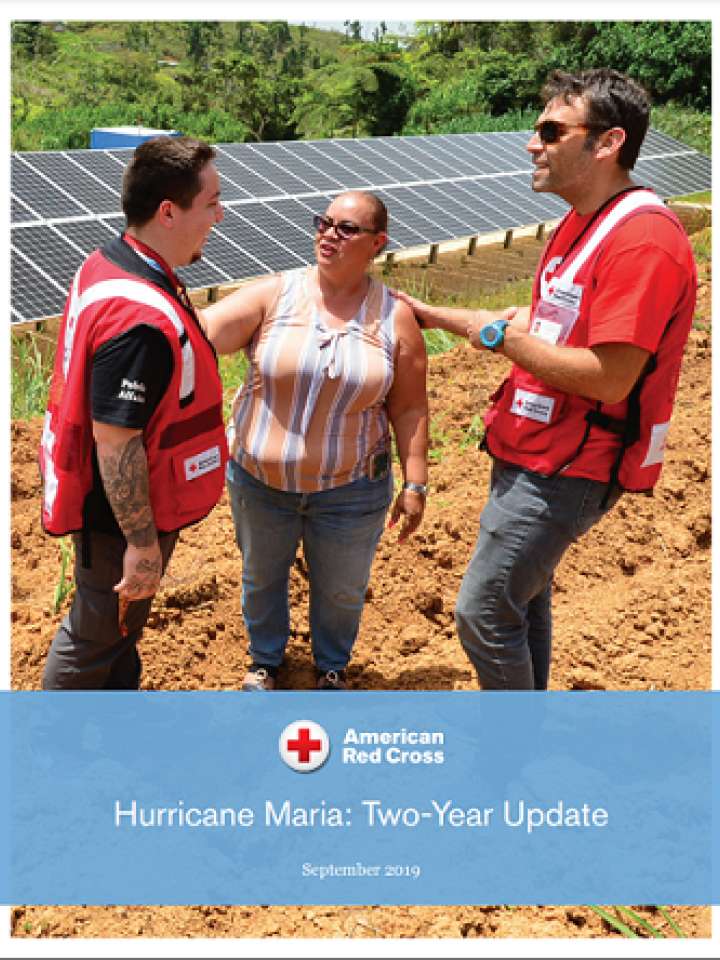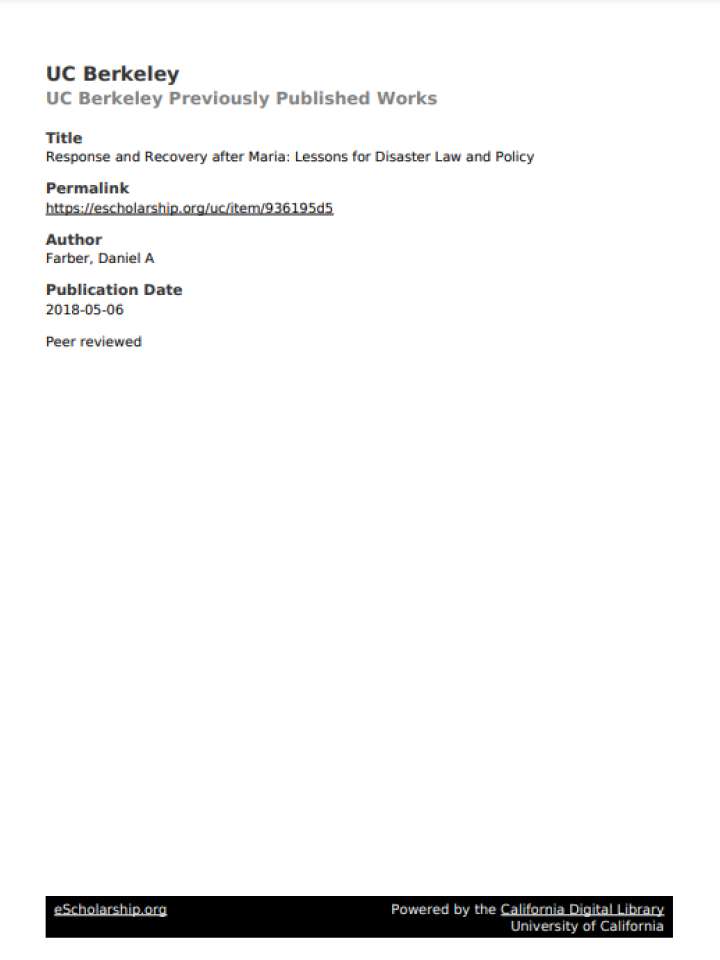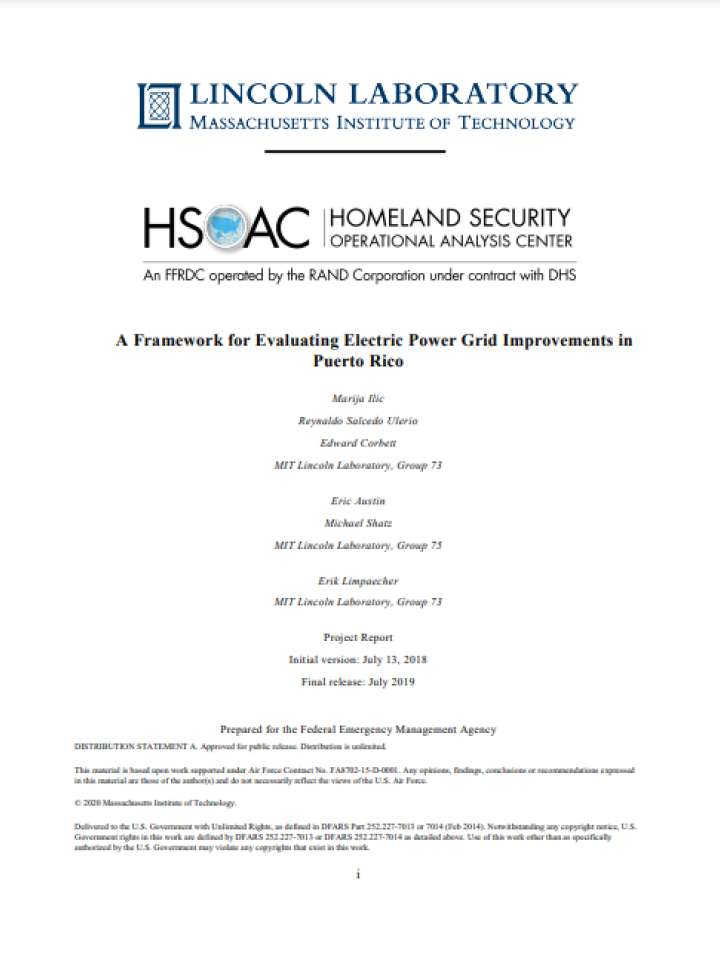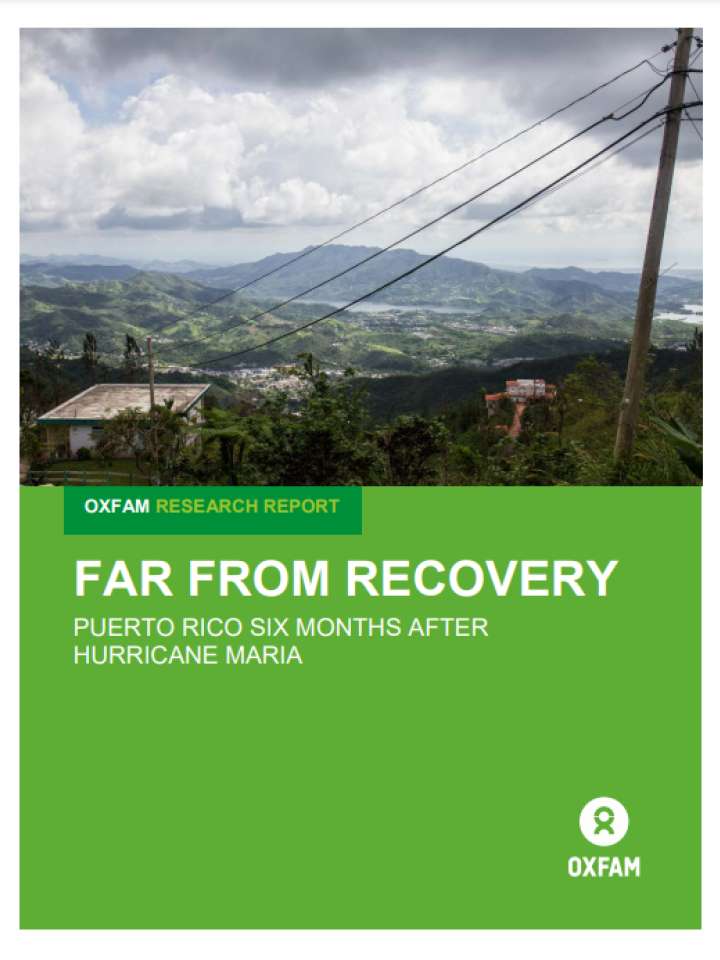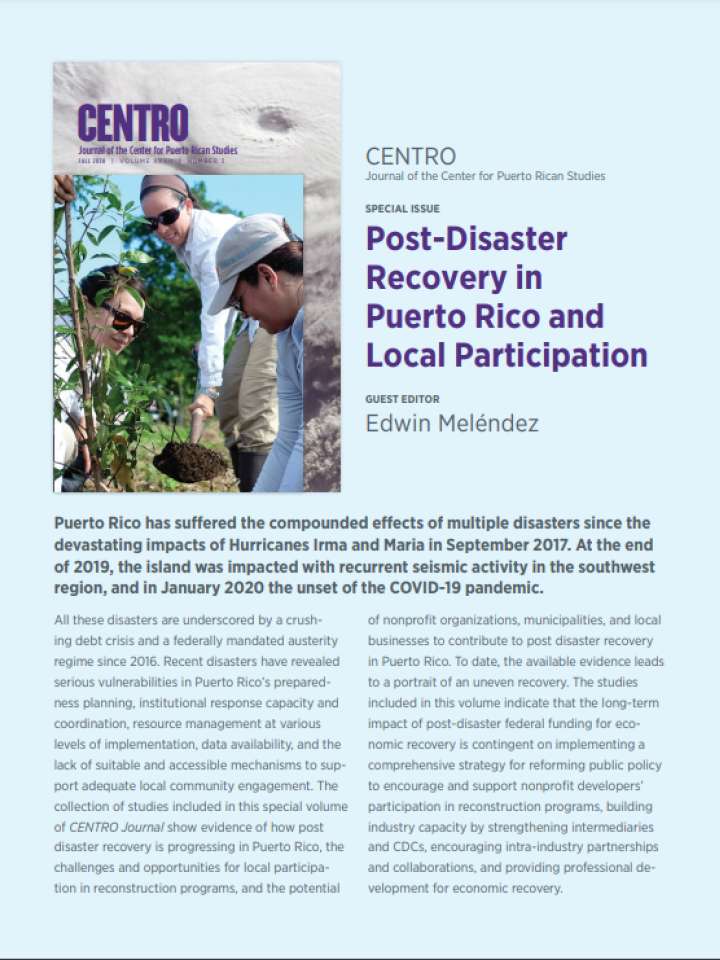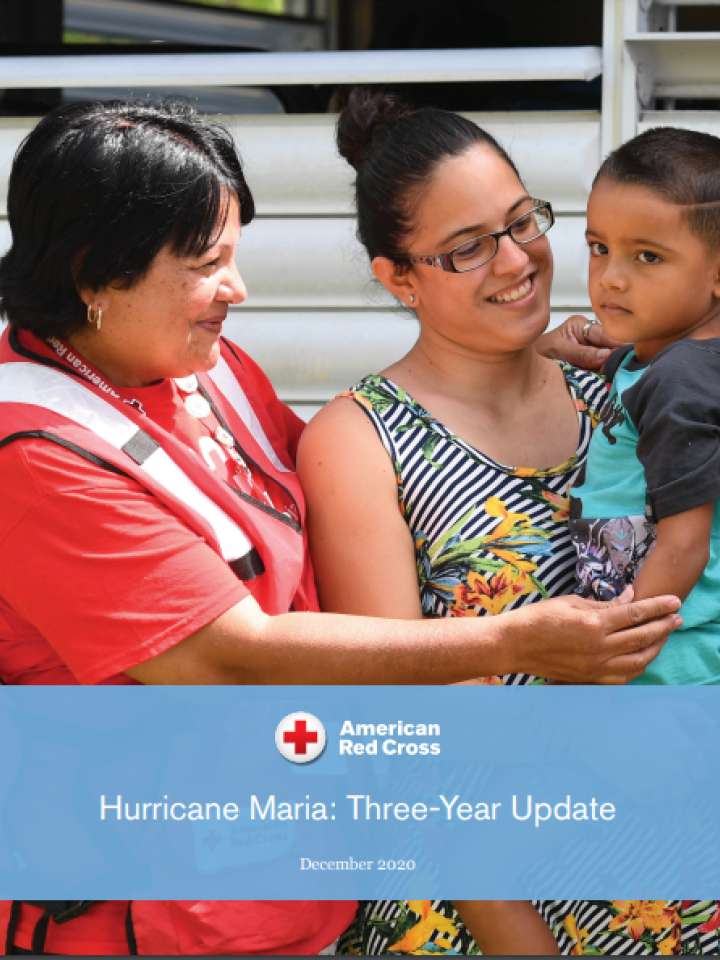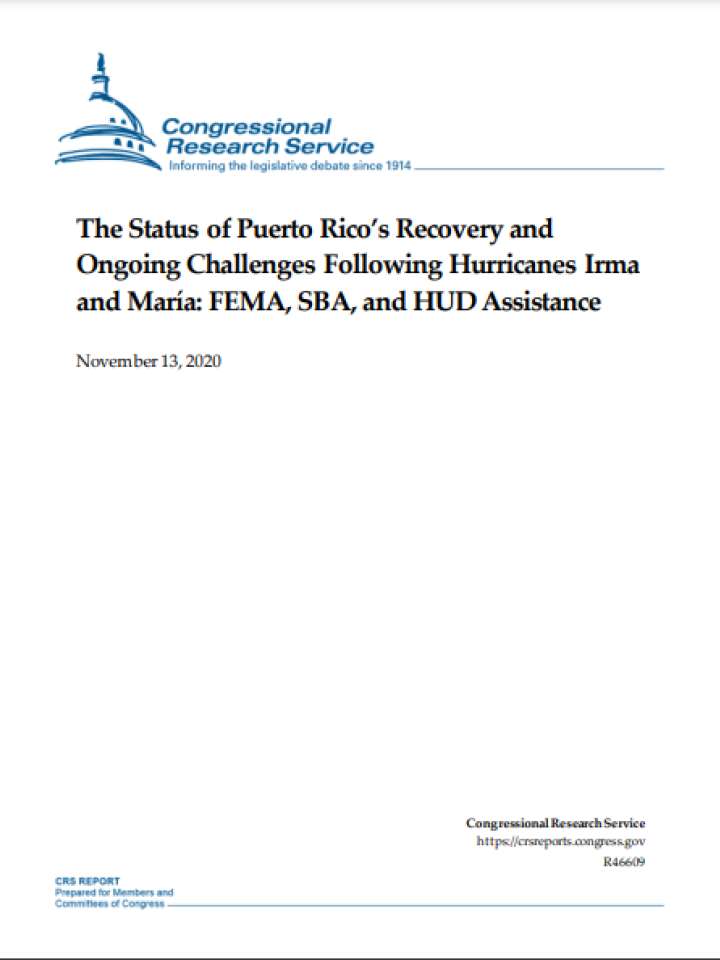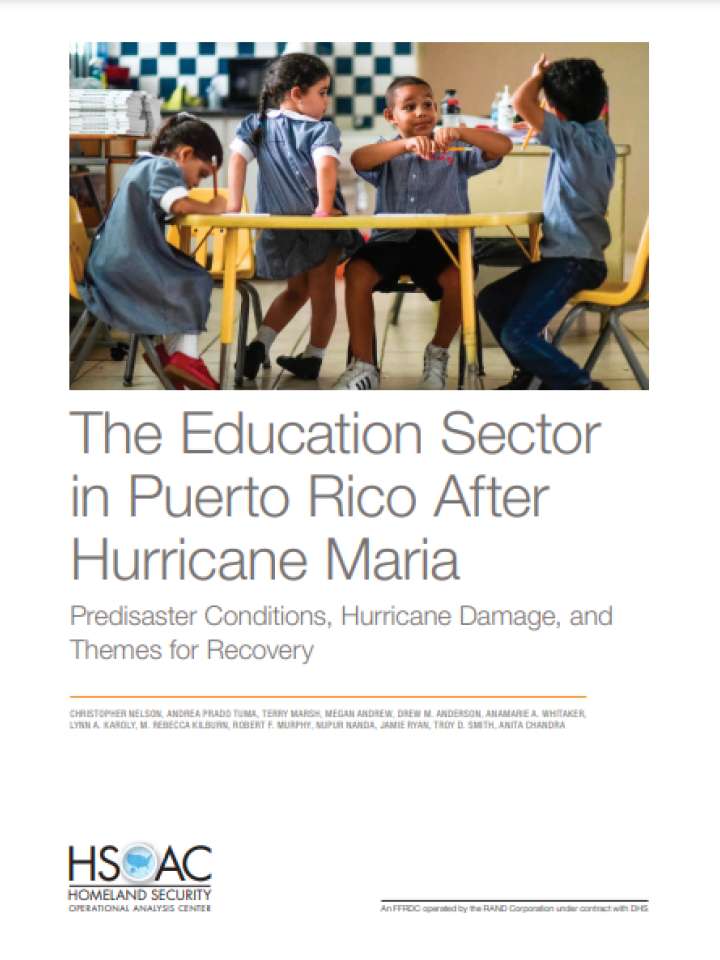Recovery Collection: Puerto Rico: Hurricane Maria 2017
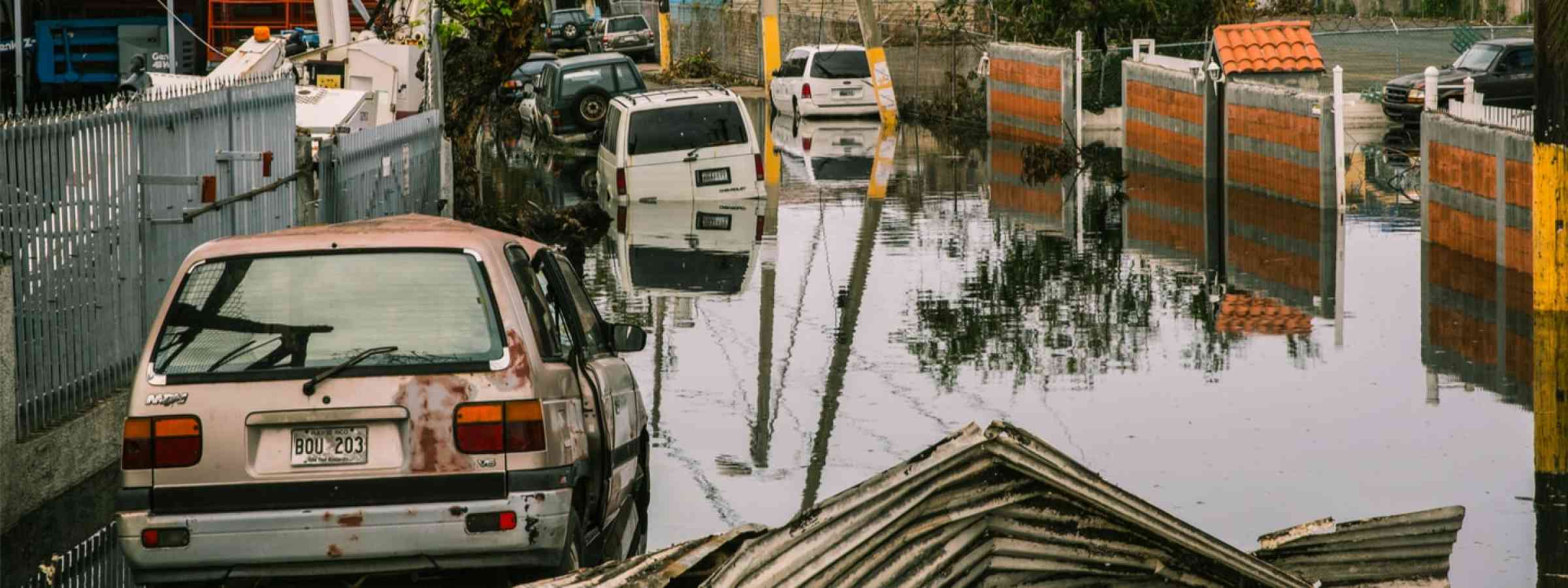
Introduction
Hurricane Maria, a category 4 hurricane, made landfall on the island of Puerto Rico on 20 September 2017, less than two weeks after the category 5 Hurricane Irma passed the northern part of the island. Hurricanes Irma and Maria also affected a number of neighbouring countries and territories including Anguilla, Antigua and Barbuda, the Bahamas, the British Virgin Islands, Dominica, the Dominican Republic, Guadeloupe, Haiti, St. Barts, St. Martin, Turks and Caicos Islands, the mainland United States of America and the U.S. Virgin Islands.
In Puerto Rico, Hurricane Irma killed 4 people and brought about widespread power outages and water service interruption for several days, which left at least 900,000 people without power and 50,000 without water. Hurricane Maria was subsequently one of the worst disasters in Puerto Rico’s history, killing at least 2,975 people based on the independent study conducted by George Washington University, which was commissioned by the Puerto Rican government, and partially or completely destroying approximately 166,000 residential buildings. The hurricane caused damage to already fragile infrastructure which had cascading impacts on lifeline infrastructure systems such as energy, transportation, access to health and essential services. The hurricane affected nearly every resident of Puerto Rico, but older adults, children, people living with disabilities and chronic illnesses, and women were disproportionately affected. A pre-existing decade-long economic crisis consisting of structural, demographic, health, social and infrastructure issues exacerbated the damage to the communities on the Caribbean Island.
To build back better in recovery from this devastating hurricane, the Government of Puerto Rico established the Central Office of Recovery, Reconstruction, and Resiliency (COR3) to play a central role in the recovery effort. It developed the Economic and Disaster Recovery Plan with support from federal legislation, the Federal Emergency Management Agency (FEMA) and the Homeland Security Operational Analysis Center (HSOAC). The plan was developed, aligned with existing plans such as Build Back Better Puerto Rico, the Plan for Puerto Rico, the National Disaster Recovery Framework, and the 2018 Community Development Block Grant-Disaster Recovery Action Plan. The team supporting the government to develop the plan conducted damage and needs assessment within specific sectors and across sectors. They identified more than 270 specific courses of action for recovery with an estimated cost of 139 billion USD over an 11-year period.
The Government of Puerto Rico sees the recovery not just as an opportunity to make the island more disaster resilient but also as a means to revitalize its economy, society and infrastructure, to lead Puerto Rico to be an innovative state. The core values for the recovery plan are capacity-building, resiliency, transparency, and innovation, and it includes short-term priorities to address the immense scope of needs such as the reestablishment of lifeline systems and repair or reconstruction of residential structures. It calls for long-term priorities to build resilience including revitalizing urban centers for economic recovery efforts and scaling social services; resilient health, education and infrastructure systems; and rebuilding infrastructure to meet modern codes and standards.
To assist the Government of Puerto Rico’s recovery efforts, the FEMA has been involved in a number of projects. As of December 2021, the FEMA had approved funding the projects to repair damage caused by Hurricane Maria and provide hazard mitigation measures for future disasters for more than 67 recreational plazas which are central to people’s gathering and economic activities. FEMA also provided a recovery toolkit for damaged schools, which includes federal resources and directories with technical assistance opportunities to help schools build capacities to be prepared against future disasters in the four key areas: planning and design, workforce readiness, contracting and procurement, and project review.
